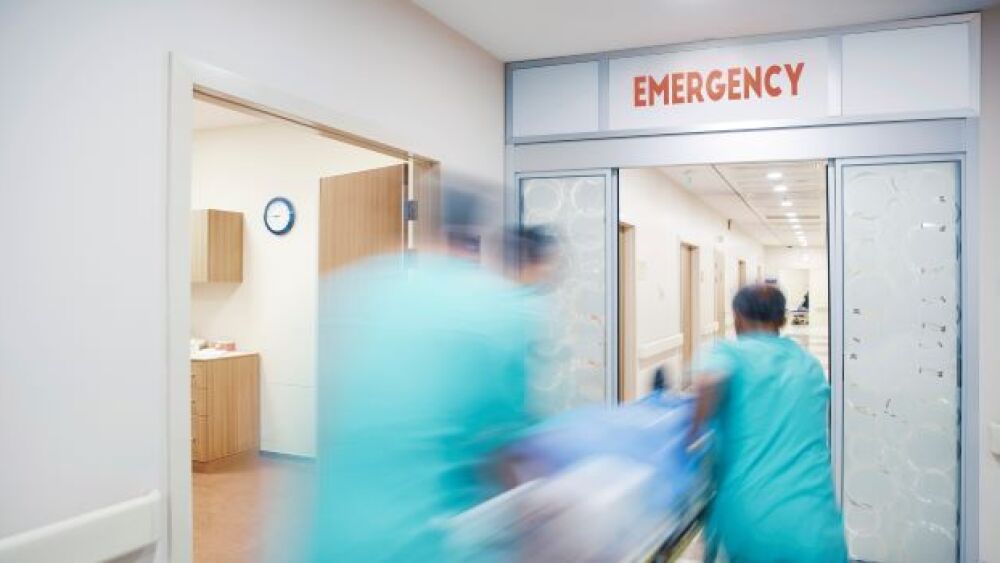The COVID-19 pandemic will end one day and, when it does, some biopharma companies will need to revert to a more normal way of working with others.
Sarah Silbiger/Getty Images
The COVID-19 pandemic will end one day and, when it does, some biopharma companies will need to revert to a more normal way of working with others. In particular, they must again adhere to the antitrust regulations that often were waived in the effort to speed the emergency use authorizations for vaccines, therapies and protective equipment.
The actual end of the pandemic and its legal end are different, Philip Katz, partner and head of the pharmaceuticals and biotechnology regulatory practice at Hogan Lovells, told BioSpace.
As background, Katz said, “The legal aspect of the pandemic began with the January 2020 finding of a public health emergency by then-Secretary of Health & Human Services Alex Azar, acting under the authority of 319(a) of the Public Health Service Act (42 U.S.C. 247d(a)).” That finding allowed HHS to make grants and enter into contracts and support investigations into the cause, treatment or prevention of the public health emergency. That determination was renewed on April 15, 2022, for another 90 days by current HHS Secretary Xavier Becerra.
For the FDA to issue emergency use authorizations (EUAs), however, “there had to be a separate finding by HHS that there is a public health emergency justifying EUAs. There were several such findings,” Katz said. They include EUAs for in vitro diagnostics tests, vaccines, medical products, and for drugs and biologics. These were made under Section 564 of the Federal Food, Drug, and Cosmetic (FD&C) Act, 21 U.S.C. 360bbb-3 and can remain in effect even if the public health emergency is declared by HHS under section 319 of the PHS Act to be over.
While some EUAs will expire with the end of the justifying determination, the FDA also can withdraw an EUA if it is no longer needed or appropriate. The agency did this a year ago, for example, withdrawing the EUA for bamlanivimab as a treatment for the SARS-CoV-2 virus based upon data indicating that the product did not appear effective against emerging variants. It also revoked the EUA for disposable respirators when they were no longer needed.
Katz doesn’t expect the FDA to be in a hurry to declare an end to the public health emergency justifying EUAs. “The FDA is doing a diligent job of balancing the public health emergency, the need to evaluate products’ safety and effectiveness, and the need to get products to patients to diagnose, treat and prevent COVID-19,” he said, “and the ability to issue EUAs is an important tool in that regard.” When EUAs do end, all products authorized for emergency use but not yet FDA-approved are no longer authorized for distribution. “At that point, the FDA generally can be expected to want companies to either remove their products from the market or get them approved under the applicable standard, but the agency may exercise enforcement discretion with products already out there,” Katz said.
There are other implications, too. The end of the pandemic would end not only the use of EUAs to bring products to market, but also the FDA’s ability to be lenient regarding the extension of product expiration dates, deviations in good manufacturing practices, and allowing prescription products to be dispensed without individualized prescriptions, Katz said.
Before such changes take effect, however, there will be a transition period to allow time for manufacturers to dispose of the product or supplies to be used. Importantly, even after the EUA for a product is withdrawn, the FDA may exercise enforcement discretion to allow continued use of the product, for example, for patients who had begun using it during the emergency. This means patients may not need to switch medications if their physicians believe they are effective.
The end of the pandemic will also likely affect FDA site inspections. Katz suggested that physical plant inspections will increase as people begin to travel, but the FDA may also continue to rely on technologies allowing remote inspections. “The FDA presumably is now more comfortable and more experienced with alternatives to traditional inspections,” he said.
For biopharma companies, the end of the pandemic also will encourage employees to return to the office, Ian Chan, co-founder and CEO of Abpro, a clinical-stage company developing antibody therapies, told BioSpace. “This enhances the overall ability for companies to collaborate as a team, and also, externally, with partners, as in-person meetings and conferences are rising again.” That said, team members have become comfortable with video meetings and consider them routine. “Thus, the overall collaboration will be more efficient than before, and will occur in a generally less legally restrictive environment.”
Chan predicted the industry will retain many of the capabilities it gained during the pandemic. “Some of the expedited FDA processes likely will remain in place to accelerate therapies to patients in other (non-COVID-19) areas. Accelerated manufacturing processes and ways of conducting clinical trials also are likely to remain, which will benefit patients facing severe disease.”
Looking forward, Katz said, “There’s going to be a difficult public discussion about when we start treating COVID-19 like the flu. Although the FDA is driven by science, and therefore might be expected to be conservative about the public health risks, the Agency is not unmindful of the broader context within which the science is applied or interpreted.”






